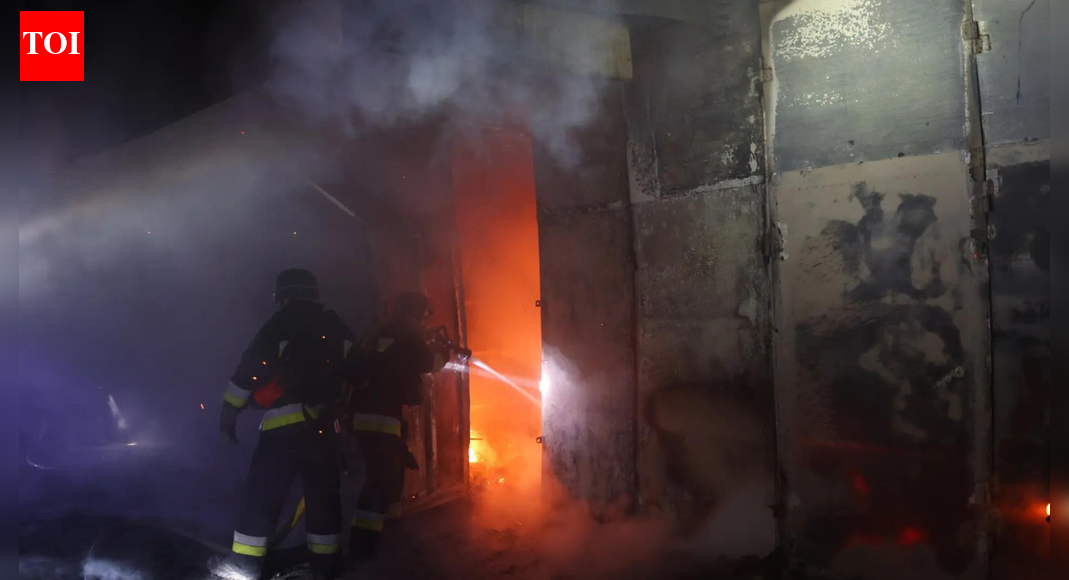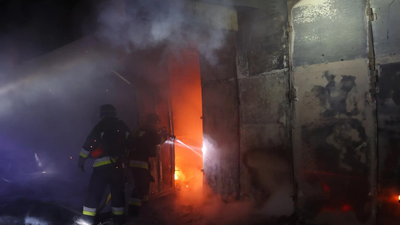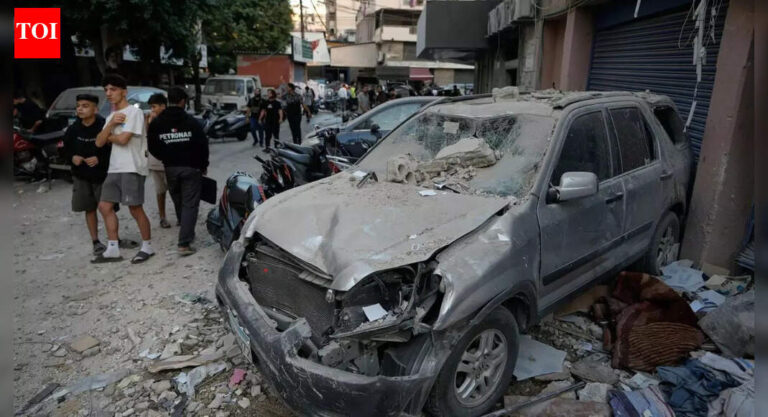
Ukraine struck a heat and power station in Russia’s Moscow region with drones on Sunday, igniting a large fire and cutting heating to thousands of residents in one of Kyiv’s most significant attacks on energy infrastructure deep inside Russian territory.Moscow region governor Andrei Vorobyov said Ukrainian drones hit the Shatura Power Station, located about 120 km (75 miles) east of the Kremlin.
Video shared on Telegram showed fireballs and thick black smoke billowing into the night sky from the facility, as cited by Reuters. “Some of the drones were destroyed by air-defence forces. Several fell on the territory of the station. A fire broke out at the facility,” Vorobyov was quoted as saying by Reuters. “All efforts are being taken to promptly restore heat supply,” Vorobyov added. The town of Shatura has a population of roughly 33,000.A resident reported that heating had been cut off, while three transformers at the power station caught fire, according to the emergencies ministry, as cited by the Kommersant newspaper.The Shatura power station, one of Russia’s oldest, was established under Vladimir Lenin after the Bolshevik Revolution. Originally powered by peat, it now operates primarily on natural gas.Russia’s defence ministry said on Sunday that its forces had shot down 75 Ukrainian drones, including 36 over the Black Sea and several in the Moscow region. Flights at Moscow’s Vnukovo airport were briefly suspended for about an hour before operations resumed.Now in its fourth year, the deadliest conflict in Europe since World War Two has seen Russia relentlessly strike Ukraine’s electricity and heating infrastructure, causing repeated outages across the country in recent months. Kyiv, meanwhile, has largely concentrated on targeting Russia’s oil refineries, crude terminals and pipelines in an effort to weaken Moscow’s war economy by hitting its vital energy revenues.Ukraine has also carried out attacks on power and heating facilities in Russian-held parts of Ukraine and in regions of Russia near the border. However, until now it had not inflicted significant damage on major electricity or heating stations serving Moscow and its surrounding region, home to more than 22 million people.







